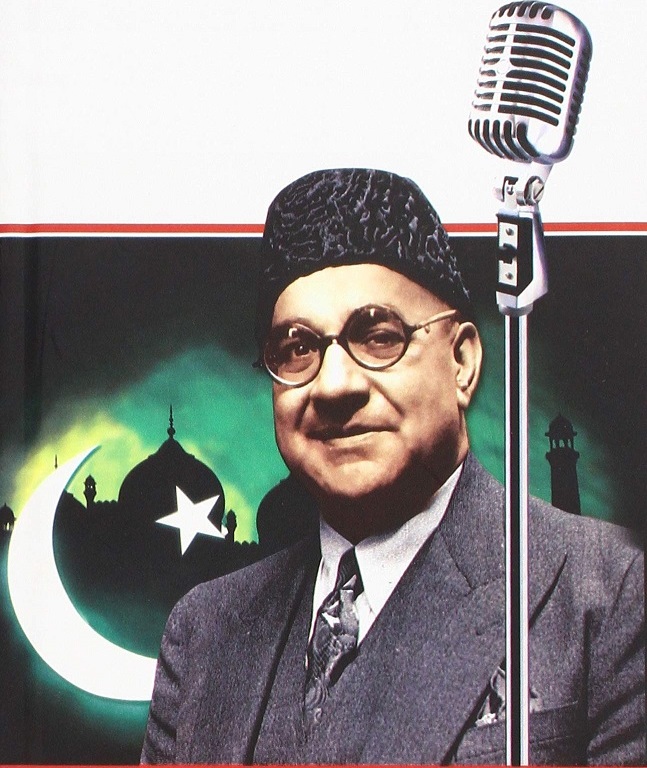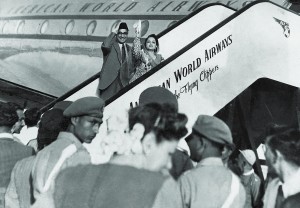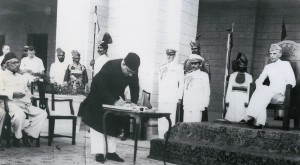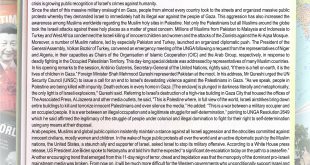Liaquat Ali Khan
A True Nationalist but Misunderstood Leader of Pakistan
Iftikhar Ahmad Yousafzai & Zafar Iqbal Yousafzai
The history and life of no other politician and leader in Pakistan is shrouded in misperceptions and mysteries as that of Liaquat Ali Khan, the first prime minister of our beloved homeland and the most trusted companion of its founding father Quaid-i-Azam Muhammad Ali Jinnah. So much unfounded and baseless matters have been attributed to him that this freedom hero and one of the few farsighted statesmen and sincere leaders of this country is seen as a villain by many of his compatriots. For example, it is believed in many circles in Pakistan – absolutely wrongly though – that Liaquat Ali caused the death of the Quaid-i-Azam by sending an ambulance, which in the words of Ms Fatima Jinnah ‘ran short of fuel’, to bring the Quaid from Karachi Airport on his return from Ziarat, Balochistan, during his illness and driving that ambulance on a road which was in dilapidated condition which allegedly further damaged the already deteriorating health of the founder of Pakistan. It is also alleged that it was Liaquat Ali Khan who threw Pakistan into the US-led Western alliance by ignoring the Soviet invitation for an official visit and visiting instead the United States, thus turning the Soviet Union into an inveterate enemy of Pakistan. Nothing is far from the truth than these allegations against this great leader. Before attempting to provide a rejoinder to these accusations against Liaquat Ali Khan, it is necessary to write a few words about his character and loyalty to his country.
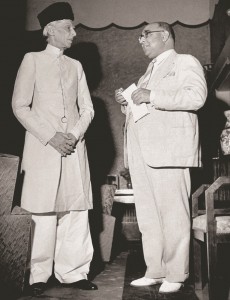 Since his joining the All India Muslim League in 1937, Liaquat Ali Khan’s financial contribution to this national organization of the Muslims was second to none. After the creation of Pakistan, he wanted to stay in India for protection of the rights of the Muslims but the Quaid persuaded him to come to Pakistan and assume the responsibilities as prime minister of the newly-born country because the Quaid was ageing and ill, and he needed the services of his comparatively younger lieutenant. In order to fulfil the wishes of his leader, Khan left his huge property in India and came to Pakistan. After assuming his duties as Prime Minister of Pakistan, he declined to draw the salary the premier was entitled to in view of the weak financial position of the country in the creation of which he had put in all his energies and poured in huge financial resources. He even turned down a proposal by his secretary to receive land in Pakistan equivalent to what he had left in India. He had been Nawab of Karnal in East Punjab and was entitled, according to the terms and conditions of Partition to which both India and Pakistan were the signatories, to receive thousands of acres of land in Pakistan. All the Muslims and Hindus who had migrated to and from Pakistan had received properties in their new countries in proportion to what they had left behind. But, Liaquat Ali Khan did not claim even an inch of land in Pakistan, and continued to sustain himself and his family on the amount which he had brought with him when he migrated from India. It was on account of meager financial position of this hereditary Nawab Prime Minister of Pakistan that when after his assassination his shirt under his sherwani was seen, it was so worn out that had been stitched, and had only a few rupees in his pocket and a few hundred as bank balance. Can any other leader be compared in honesty, austerity and dedication to Pakistan to the this great leader? The answer would be definitely in a big NO.
Since his joining the All India Muslim League in 1937, Liaquat Ali Khan’s financial contribution to this national organization of the Muslims was second to none. After the creation of Pakistan, he wanted to stay in India for protection of the rights of the Muslims but the Quaid persuaded him to come to Pakistan and assume the responsibilities as prime minister of the newly-born country because the Quaid was ageing and ill, and he needed the services of his comparatively younger lieutenant. In order to fulfil the wishes of his leader, Khan left his huge property in India and came to Pakistan. After assuming his duties as Prime Minister of Pakistan, he declined to draw the salary the premier was entitled to in view of the weak financial position of the country in the creation of which he had put in all his energies and poured in huge financial resources. He even turned down a proposal by his secretary to receive land in Pakistan equivalent to what he had left in India. He had been Nawab of Karnal in East Punjab and was entitled, according to the terms and conditions of Partition to which both India and Pakistan were the signatories, to receive thousands of acres of land in Pakistan. All the Muslims and Hindus who had migrated to and from Pakistan had received properties in their new countries in proportion to what they had left behind. But, Liaquat Ali Khan did not claim even an inch of land in Pakistan, and continued to sustain himself and his family on the amount which he had brought with him when he migrated from India. It was on account of meager financial position of this hereditary Nawab Prime Minister of Pakistan that when after his assassination his shirt under his sherwani was seen, it was so worn out that had been stitched, and had only a few rupees in his pocket and a few hundred as bank balance. Can any other leader be compared in honesty, austerity and dedication to Pakistan to the this great leader? The answer would be definitely in a big NO.
Most of his detractors blame Liaquat Ali Khan for the deterioration of the Quaid’s health by arranging a non-functioning ambulance for bringing the Quaid from Karachi Airport to his residence. They point out that the road on which the vehicle was being driven was a dilapidated one. Resultantly, the ambulance consumed more time in reaching the Quaid’s residence, thus causing irreparable loss to his health at a time when his disease had already reached a critical stage. It is said that after the prime minister departed after seeing the Quaid in the hospital – along with some members of his cabinet – the Quaid remarked that instead of enquiring after his health, the prime minister and his cabinet colleagues had come to see when the ageing leader would die. Nothing seems far from the truth. This point of view runs contrary to the high standing of the Quaid as the Founder of the Nation and as the first Governor-General of Pakistan. It also seems implausible owing to the Quaid’s firm and iron hold over the destiny of the country and the nature of relationship between the first Governor-General and first Prime Minster. Many historians have pointed out that the Quaid had an unwavering control over the state of affairs in Pakistan till the last moments of his life and any suspicion regarding the loyalty of the Prime Minister or any other member of the cabinet, or any laxity on their part in his treatment, would have invited the wrath of the Quaid leading to their immediate dismissal.
Liaquat Ali Khan is also held responsible for having Pakistan thrown into the US-led capitalist bloc. The reason cited to prove this claim is Khan’s decision to visit the United States, ignoring the Soviet invitation. This accusation is based on lack of knowledge of the circumstances leading to his US visit, and the subsequent events that brought Pakistan and the US into an alliance along with a knowledge of the role played by principal players in consummation of this alliance after the assassination of the first prime minister. A brief account of the circumstances seems in fitness of the situation.
The United States was not interested in Pakistan in the initial years after its independence. The American leaders were more interested in either enlisting both India and Pakistan in their struggle against the Soviet Union or else they would prefer a large and powerful India as their ally, instead of a weaker and smaller Pakistan. That is why the Indian Prime Minister Jawaharlal Nehru was invited in 1949 for a state visit to the United States and no such invitation was extended to the Pakistani Premier. This was taken as an affront by Pakistani officials and popular circles and caused great indignation among them. In order to offset the situation, the Pakistani foreign office managed – through the Soviet embassy in Tehran – to get an official invitation to Liaquat Ali Khan from Moscow. But, the Soviets later dragged their feet. Establishment of diplomatic relations and exchange of ambassadors between the two countries was necessary before any official visit of the prime minister could take place. Pakistan sent its ambassador to the Soviet Union but the latter procrastinated. Then, fixing of date for the visit became an issue. After much argument, the Soviet government put forward 15 August as the date for the visit which was not acceptable to Pakistan due to official engagement of the prime minister on that date in connection with Independence Day celebrations. From then onward, the Soviet Union put the matter into the cold storage. In the meantime, Liaquat Ali Khan received an invitation from the US President Harry S. Truman and for that the date was fixed with mutual agreement of the two sides. Thus, Pakistan, or Liaquat Ali Khan for that matter, could not be held responsible for non-materialization of the proposed visit to the Soviet Union. Rather it was the official attitude of the Soviet Union that is to be held responsible for this.
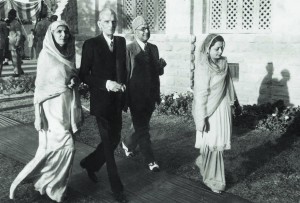
Liaquat Ali Khan paid an official visit to the United States and remained there for almost a whole month (from 3 to 26 May 1950) during which he met President Truman and Secretary of State Dean Acheson as well as the then Defense Secretary Louis A. Johnson. The fact that PM Khan did visit the United States is presented as evidence in support of the theory that he was the architect of the Pakistan’s alliance with the United States. This perception is also unfounded and reflects a complete oblivion to what transpired between Liaquat and the US officials during that visit. The US officials tried their level best to persuade the Pakistani leader to acquiesce in the American demand of making Pakistan an ally of the United States in return for some economic and military assistance. Liaquat was not ready to tie his country with the US against the Soviet Union for a paltry price. He wanted some credible assurances regarding full backing on the Kashmir issue in the United Nations and other international forums, and substantial economic and military assistance so that Pakistan may stand to India in case of any showdown. The US administration was not ready to offer such assurances. So, Khan had to return without concluding any agreement with the US officials. The whole exercise was just an exploration of minds but there was no common ground between the two sides.
Even after Khan’s return, the US tried to persuade him through the US embassy in Karachi (the then capital of Pakistan) to convince him to American viewpoint. Only two days before his assassination, the then US Ambassador to Pakistan cabled to the State Department in Washington that the Pakistani premier had categorically stated that his country would not become an ally with the US on the terms and conditions offered by it and that this topic should no longer come for discussion. The same day, PM Khan wrote to Pakistan’s ambassador to Iran, Ghazanfar Ali Khan, asking him to see ambassadors of Muslim countries in Tehran to convey to their countries Pakistan’s keen desire for unity of the Muslim states so that they could chart their own destiny as opposed to the US and Soviet blocs that were using the Muslim countries for pursuing their own imperialist designs. On the third day of these cables, Liaquat Ali Khan was assassinated while he came to the rostrum to address a huge public gathering in Rawalpindi.
In fact, ministers of his own cabinet, who were in league with the United State, were involved in this horrific assassination. The same ministers, then, came to the helm of affairs after Liaquat’s death. The same actors allied Pakistan with the US on terms and conditions upon which Liaquat had refused. These men carried out a propaganda campaign against the assassinated leader with a view to prevent his charisma from building among the masses. They knew that if the true picture of Liaquat as a sincere and nationalist leader comes before the masses, the conspirators would not be able to sustain themselves in power for long. Therefore, they started a campaign of character assassination against the first prime minister of Pakistan and spread unfounded and baseless rumors against him.
It is apt to conclude the article in the words of Dr Muhammad Reza Kazimi who wrote in his article ‘The much misunderstood Premier’: “The critics of Liaquat survived, but Liaquat did not. And he died in circumstances that have never allowed anyone to pinpoint the actual killer … or killers. Liaquat’s life and actions generated controversies when there should have been none, and his death remains a controversy that failed to generate much interest where it mattered. Liaquat definitely deserved better.”
Iftikhar Ahmad Yousafzai is a PhD Candidate at the Department of Political Science, University of Peshawar and Zafar Iqbal Yousafzai is an independent researcher and columnist based in Islamabad. He tweets at: YousafzaiZafar5.
 Jahangir's World Times First Comprehensive Magazine for students/teachers of competitive exams and general readers as well.
Jahangir's World Times First Comprehensive Magazine for students/teachers of competitive exams and general readers as well.
